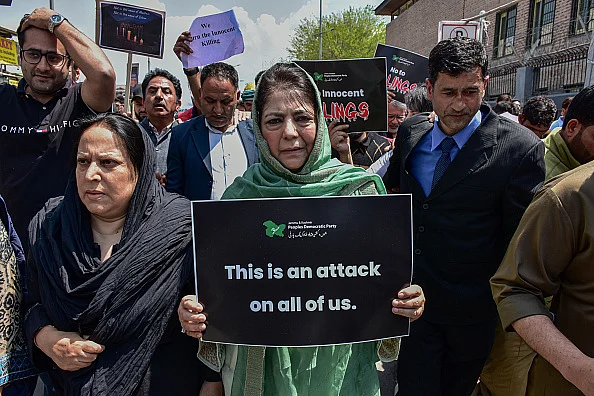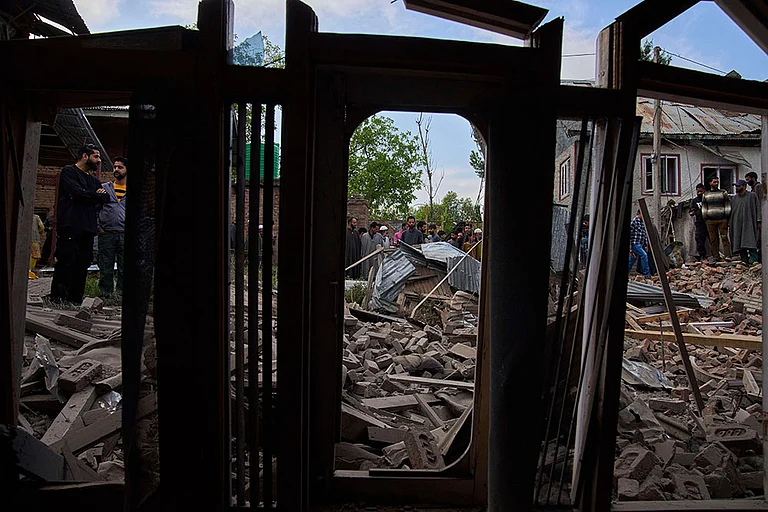It has been nearly a week since the Pahalgam tragedy shook the nation, and the shockwaves continue to reverberate across India. The entire country remains gripped by grief, anger and disbelief at the sheer brutality of the attack. Emotions are running high, and there is a strong sense of outrage and a natural call for justice.
Despite this emotional upheaval, citizens across the nation have shown remarkable restraint and unity. However, as is often the case during such times, fringe communal elements have attempted to hijack the tragedy to stoke fear and hatred, particularly against the minorities. This opportunistic behaviour must be condemned in the strongest terms.
In a heartening and powerful display of solidarity, the people of Kashmir have stood shoulder to shoulder with the rest of the nation. They have unequivocally condemned the attack and come out in large numbers to denounce terrorism. This spontaneous and courageous response by Kashmiris, who risked backlash from militants to raise their voices, has sent a clear message that terror has no place in their land.
Now, the responsibility lies with the Government of India to respond with both strength and sensitivity. On the one hand, it must ensure justice for the victims and address the nation라이브 바카라 collective anger. On the other, it must honour and nurture the solidarity shown by ordinary Kashmiris. Balancing these two imperatives will be a challenging task, requiring thoughtful and measured action.
The terrorists, no doubt, would be shocked by the unprecedented reaction from Kashmiris. They had perhaps expected silence or fear, but instead faced open defiance. Unsurprisingly, they will likely retaliate in an attempt to instil fear among the people.
Unfortunately, two civilian deaths have occurred in the past two days, surrounded by serious suspicion and allegations. One case involves Altaf Lali, a resident of Ajaz, Bandipora district, whose brother is a militant currently in jail. Lali and his sister were summoned to the police station. While his sister was released after questioning, Lali was detained. Two days later, his family was informed that he had died in an encounter. People refused to believe the police version and came out to protest.
In another incident, Ghulam Rasool Magray, a resident of Kandi, Kupwara—reportedly related to a militant based in Pakistan—was shot dead late at night by unidentified gunmen, leaving behind his mother, a widow. Though no formal questions are being asked, whispers are circulating about the true identity of the gunmen.
The Government of India faces a critical challenge. It must act decisively against militancy, while carefully distinguishing between terrorists and ordinary citizens. Following the Pahalgam attack, reports indicate widespread detentions across Kashmir Valley. Houses of militants who had long ago deserted their families are being destroyed by using dynamite. This has also caused irreparable damage to the houses of innocent civilians in the neighbourhood. While the gravity of the situation demands robust measures, it is imperative to avoid alienating innocent civilians, especially those who courageously condemned terrorism and stood for peace. Indiscriminate actions risk undermining the very solidarity that Kashmiris have shown towards the nation.
Alienating such voices and giving collective punishment would only serve the terrorists’ agenda: to divide, isolate and instil fear. Instead, this moment must be used to deepen trust and reaffirm the idea that unity and empathy are our strongest weapons against terror. The government must pursue justice with precision, ensuring that its response fosters trust and unity, rather than fear and division.
(Views expressed are personal)
Mehbooba Mufti is the president Of Jammu And Kashmir라이브 바카라 People라이브 바카라 Democratic Party
This article is part of 바카라라이브 바카라 May 11, 2025 issue, covering the Pahalgam terror attack and the old wounds it has reopened. It appeared in print as ‘Distinguish Between Terrorists And Ordinary Citizens’















